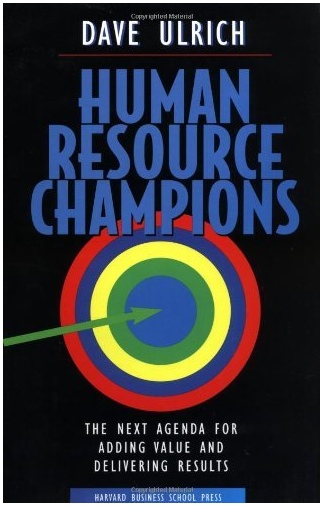Whenever the human side is involved, organizational change projects tend either to ignore it or to completely outsource it to the human resources (HR) department. Hopes, dreams, wishes, and expectations are never taken into account,and training, communication and coaching are restricted to the minimum.
Forget what Dave Ulrich says
1. HR is Not a Change Agent
 HR safeguards continuity in the organization. Let’s face it: By their very nature, the fundamental HR processes are aimed at safeguarding stability. But when you ask HR managers about the core competencies of their departments, they will tell you that the management of organizational change is on the forefront. They are wrong. The basic processes of HR and their accompanying goals are the following:
HR safeguards continuity in the organization. Let’s face it: By their very nature, the fundamental HR processes are aimed at safeguarding stability. But when you ask HR managers about the core competencies of their departments, they will tell you that the management of organizational change is on the forefront. They are wrong. The basic processes of HR and their accompanying goals are the following:
- Recruiting and Selection => Goal: Employment Continuity
- Training and Development => Goal: Knowledge and Skills Continuity
- Performance Management and Appraisal => Goal: Performance Continuity
- Compensation and Benefits => Goal: Stability in Personnel Costs
- Work organization and Communication Systems => Goal: Social Stability
Therefore, HR should be approached as you would any other function in the organization,and they should be the first target of your change-management efforts.But there is more.
2. HR is an Agent of Continuity
As a support function, HR will be impacted indirectly by a reengineering effort and will most likely resist at first hand. Does that disqualify them from having any stake in the organizational change? Not at all.
Change always happens in three phases: Unfreezing, Changing, and Refreezing. As the key strength of HR is to stabilize the human side of an organization during and after a transition, it is their role to lead the Refreezing stage. In order for the change to stick onto the organization, you are going to use the HR department’s tools and methods.
Therefore, HR is one of the first targets to work with. The faster you can enlist them into becoming a continuity agent, the better. Just don’t expect them to be on the same page from day one, as they—like everybody else—will resist the change in the beginning.
Conclusion: HR as a Co-Pilot in Long-Term Planning
From my experience, the only HR actions that have a positive impact take place at the beginning and at the end of a change program lifecycle. This leads me to conclude that continuity and not change is HR’s core business. Even when the organization is affected during the transition, HR should help you out in minimizing the disruption of continuity.
As an example, program staffing of key people is a task that needs to be conducted in close alignment with HR as it should involve career perspectives and long-term accountability. Gradually, as the program comes to a close, HR needs to become the owner of the deliverables regarding learning, performance, organization, and communication.
The role of HR in this case is one of sustaining the change and integrating it into its standards and procedures. In other words: safeguarding stability and continuity of the new organization.

